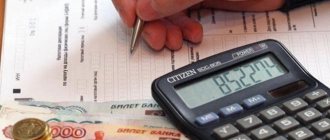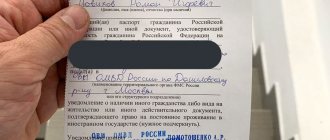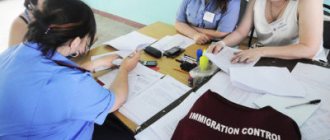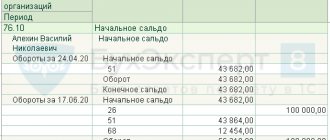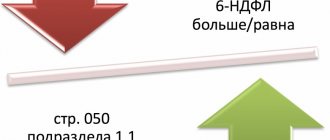The procedure for attracting foreign HQS to work
If it is impossible to find a Russian worker with the required level of qualifications, there is a need to attract foreigners to work. Taxation of highly qualified foreign specialists in 2021 depends on the assignment of such status to employees. The HQS status is assigned if a foreigner has the appropriate skills, achievements and work experience in a certain activity. Compliance with qualifications is confirmed by documents indicating the presence of relevant skills and knowledge (diplomas, scientific works, etc.), work experience (employment contracts), and reviews from previous employers.
In addition, it is necessary to comply with Art. 13.2 of Federal Law 115-FZ of July 25, 2002 salary level.
| Employee category | Level of established remuneration |
| Researchers or teachers hired to work in universities, state academies of sciences and their regional branches, national research or scientific centers. HQS involved in the work:
| At least 83,500 rubles. per month. |
| Involved in activities by residents of technology-innovation SEZs. | Not less than 58,500 rub. per month. |
| Medical, pedagogical, scientific workers of international medical clusters. | At least 1 million rubles. in year. |
| Participating in the implementation of the Skolkovo project and the innovative scientific and technological center (in accordance with 216-FZ). | No remuneration limit. |
| Other citizens of foreign countries. | At least 167,000 rubles. per month. |
Read more: We recruit highly qualified foreign specialists
The nuances of employing VKS
Specialists have the status of highly qualified if they fulfill two conditions:
- they have high qualifications, work experience, and special skills in their profession;
- receive a salary in an amount not lower than the amount established by 115-FZ. In general, at least 2 million per year.
Features of the employment of such workers are listed in Chapter 50.1 of the Labor Code of the Russian Federation and Article 13.2 of 115-FZ. Among them are the following:
- to attract HQS, the employer does not need to obtain permission to hire foreign labor, but the HQS himself issues a work permit;
- A HQS needs to be registered with the migration register only if he lives on the territory of the employer or in housing owned by him;
- A work permit for a HQS is issued for a period of up to 3 years. But this is not a basis for concluding a fixed-term employment contract with him. If there are no grounds (Article 59 of the Labor Code of the Russian Federation), the employment relationship is formalized for an indefinite period;
- like any employee, a highly qualified foreign specialist pays taxes and contributions in accordance with the procedure established by the Tax Code of the Russian Federation and other legal acts;
- labor activity on the basis of a work permit is also permissible in several regions, if such a condition is specified when obtaining the permit;
- unlike other foreign workers, there are no restrictions on business trips for HQs;
- the employer is obliged to notify the migration authorities about the hiring and dismissal of HQS, and quarterly report on the fulfillment of the obligation to pay the prescribed minimum wage in relation to such an employee. Moreover, the amount of payments for each quarter must be at least 3 times the monthly remuneration, even if the employee did not work in some month;
- HQS salaries are paid only by transfer to a bank account, even if the highly qualified specialist is a resident, based on tax legislation.
Personal income tax
The Tax Code of the Russian Federation establishes a special personal income tax rate for highly qualified specialists in the amount of 13%. It does not depend on the presence or absence of tax resident status. But there are a number of tax features:
- A non-resident HQS pays personal income tax at a rate of 13% (and not 30%, like other non-residents). But such an employee is not entitled to receive tax deductions. Personal income tax is calculated in relation to each payment of income;
- a highly qualified resident specialist has the right to receive tax deductions. Income tax is calculated on an accrual basis from the beginning of the year;
- If a foreign HQS who is not a resident receives income not related to wages, then personal income tax is withheld from him at a rate of 30%.
Possible questions and difficulties
When filling out the notice, the employer may have the following questions::
- What information should be indicated in the column “Registration address at the place of stay or registration address at the place of residence” if the employee changed his place of residence in the month following the reporting quarter, i.e. When is it necessary to send a notification to the Ministry of Internal Affairs? The actual address is indicated on the date of filling out the information in the notification.
- Should the amount of wages be indicated as accrued or actually paid? Salary data is indicated in accordance with the data specified in the employment contract concluded with the employee, that is, the accrued amount.
- Wages for the last month of the quarter are paid 2 times: the first - at the end of the last month in the quarter, and the second - at the beginning of the first month of the next quarter. Should the second payment be indicated in the “unfulfilled obligations” column? The amount of wages whose payment is not due may be indicated as an unfulfilled obligation.
Insurance premiums
Foreigners working in the Russian Federation have the following status:
- temporarily staying highly qualified specialists;
- temporary or permanent residents.
How insurance premiums for a highly qualified foreign specialist are paid in 2020 also depends on the category of foreigner:
- from the remuneration of HQS who are citizens of countries included in the EAEU, insurance premiums are paid in accordance with the rules established for payments to citizens of the Russian Federation. An exception is payments to EAEU citizens temporarily staying in the Russian Federation. Payments to such employees do not include contributions to compulsory pension insurance;
- Insurance premiums for temporarily staying highly qualified specialists are paid only for injuries. Payments to such employees are not recognized as the tax base for insurance premiums, in accordance with paragraphs. 15 clause 1 art. 422 Tax Code of the Russian Federation;
- insurance premiums for occupational safety and health insurance, occupational safety and health, and injuries are paid based on the wages of temporary and permanently residing HQS. Compulsory medical insurance contributions are not paid.
Labor activity of foreigners: legal basis
The first law that any foreigner who wants to visit the Russian Federation needs to read contains the rules for crossing the Russian border (114-FZ dated August 15, 1996). It states that when entering without a visa, a future labor migrant must indicate his intention in a special section of the migration card. A foreigner entering under a visa regime is required to obtain a special work visa and invitation.
The following mandatory reading law No. 115-FZ of July 25, 2002 tells foreigners about their status in the Russian Federation, including the specifics of working in the Russian national economy.
How to properly accept a foreign specialist into a team and ensure further mutually effective cooperation is described in the article on the work activities of foreign citizens in the Russian Federation.
Responsibility for non-payment of taxes
If an employer fails to pay personal income tax or insurance premiums for a highly qualified foreign specialist in 2021, penalties will be applied to him.
Firstly, for each day of delay in payment, penalties will be withheld based on:
- 1/300 of the refinancing rate - for the first 30 days;
- 1/150 of the refinancing rate - starting from 31 days.
Secondly, if the tax base is understated, a fine of 20% of the uncalculated and unpaid tax is applied. In case of deliberate underestimation, the fine increases to 40%.
Thirdly, if personal income tax on highly qualified foreign specialists is not paid on time, a fine of 20% of the unpaid tax is applied. This fine can only be avoided if the tax authority discovers the error earlier, submits the 6-NDFL with the tax calculated correctly, and pays the tax and penalties to the budget.
Administrative responsibility
For violation of the requirement to submit a notice of payment of wages to the HQS to the territorial body of the Ministry of Internal Affairs, including its absence or violation of the procedure for submission, in paragraph 5 of Art. 18.15 of the Code of Administrative Offenses of the Russian Federation provides for liability in the form of an administrative fine for officials in the amount of 35 thousand rubles. up to 70 thousand rubles. , and for legal entities - from 400 thousand rubles. up to 1 million rubles
When involving HQS in labor activities, the employer should study all the legislative nuances relating to labor relations with a foreign citizen. Labor relations with HQS require compliance with tax rules, as well as migration legislation .
If you find an error, please select a piece of text and press Ctrl+Enter.
Personal income tax rate for foreigners
The total amount of bets on earned funds is equivalent to 30%. This is according to the law. But in practice everything is somewhat different:
- 13% is transferred from total income;
- certain categories of persons will contribute the same amount to the budget from their salaries, and an additional 15% from their dividends and compensations;
- if a person is the founder of a business company in Russia, then his dividends will be reduced by 15%, and other income items will be reduced by 30%.
Note! If within 12 months a person, due to current circumstances, changes his status and is no longer a resident, then his PFDL will be considered under a preferential scheme.
If the payer works on the basis of temporary residence permit
The regulations do not contain clear recommendations in this regard. It is recommended to apply general rules and refer to the rate specified in Article 224 of the Tax Code - standard tax of 13%. For employees working for a temporary residence permit, the calculation system should be used, as for other Russian citizens.
Highly qualified specialists
This concept is determined by the level of the employee’s monthly income. He can be considered highly qualified if a person earns at least 85 thousand rubles per month. 13% tax deductions will be deducted from his total profit. Moreover, if he is entitled to compensation, he must pay 30% of it.
Citizens of EAEU member countries
People who have citizenship of states that are permanent members of the economic Eurasian Union are protected by international treaties, within the framework of which they cannot be deducted from them into the tax budget an amount greater than what citizens of the Russian Federation pay. Therefore, it is the same 13%.
Amount of deductions from the salaries of persons with a patent
Those who carry out their labor activities under a patent transfer tax fees as follows. Once the patent is issued, an advance payment must be made. This value is fixed. Then you need to contact the fiscal authorities and obtain permission from them to change the advance tax assessment downward. The law allows no more than 10 days to make such a decision, after which the amount of contributions to the budget will be reduced by exactly the amount of the advance already made.
This video describes in detail how personal income tax is calculated for persons working under a patent:
How much will a non-resident give to the budget?
A foreigner with a visa will be able to work in the Russian Federation only with permission, and at the same time he will lose 30% of his income every month until the threshold of his stay in the country exceeds 183 days. The reduction rate works only for beneficiaries and persons with special status.
Personal income tax for non-resident shift workers
Working on a rotational basis does not reset the period during which the foreigner lived in the Russian Federation. At the same time, for the period when he is outside the state, the countdown will be automatically suspended. After the required number of days is calculated, the rate will be changed from 30% to the standard 13%.
Income tax for refugees
A person can consider himself a refugee only if he has official confirmation of this. This is proven by a special document, which states that he was forced to move by an emergency situation in his homeland. The migrant’s income will also be deducted 13%.
Contributions from payments to foreigners working remotely
When negotiating with foreigners about remote work (when they perform work on the territory of their state), one should take into account not only the norms of the legislation on insurance premiums, but also the provisions of the Labor Code of the Russian Federation, but also the clarifications of the Ministry of Labor. According to officials, cooperation with such citizens should be carried out within the framework of civil law rather than labor relations (Letter of the Ministry of Labor dated November 5, 2015 No. 17-3/B-534).
Insurance premiums (OPS, OSS and compulsory medical insurance) under such an agreement do not need to be calculated, except for contributions for injuries, provided that the agreement contains the appropriate condition for the payment of such contributions (clause 1 of Article 5 of Law No. 125-FZ).

